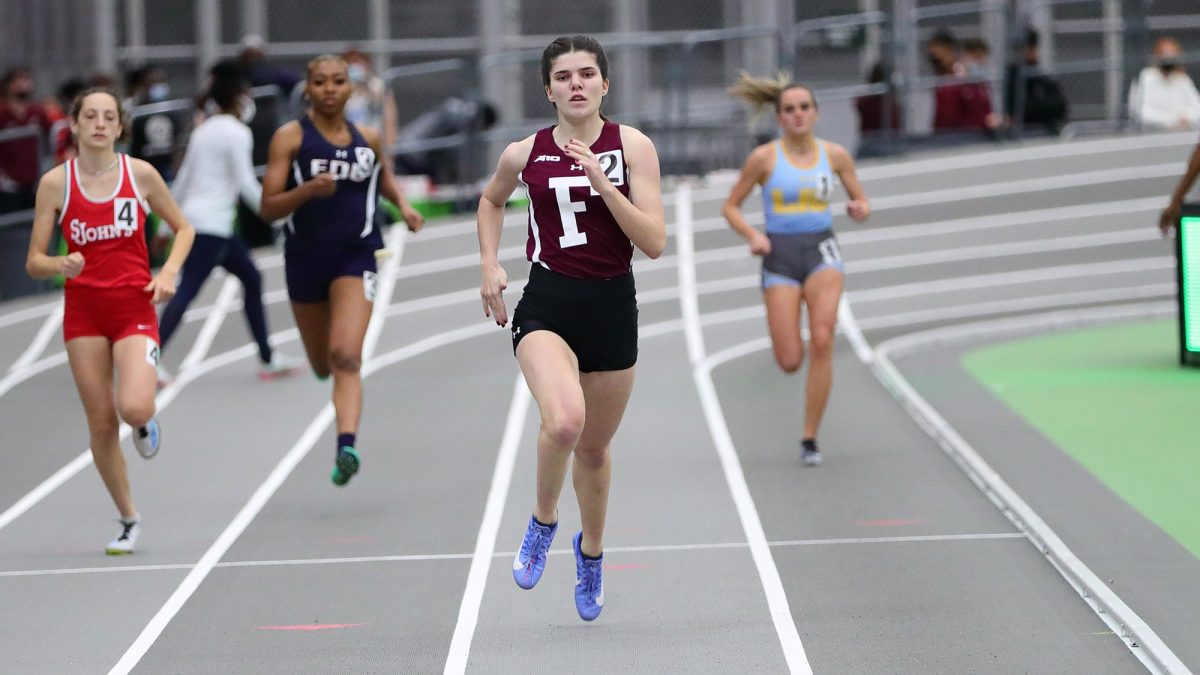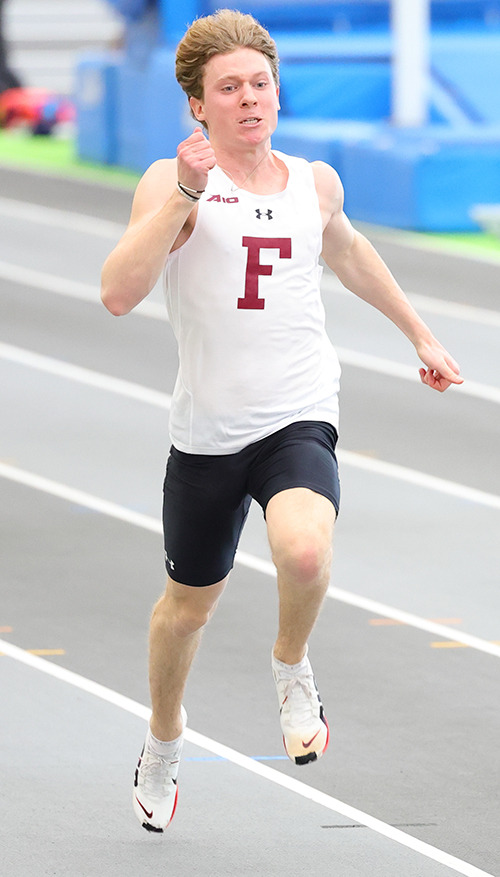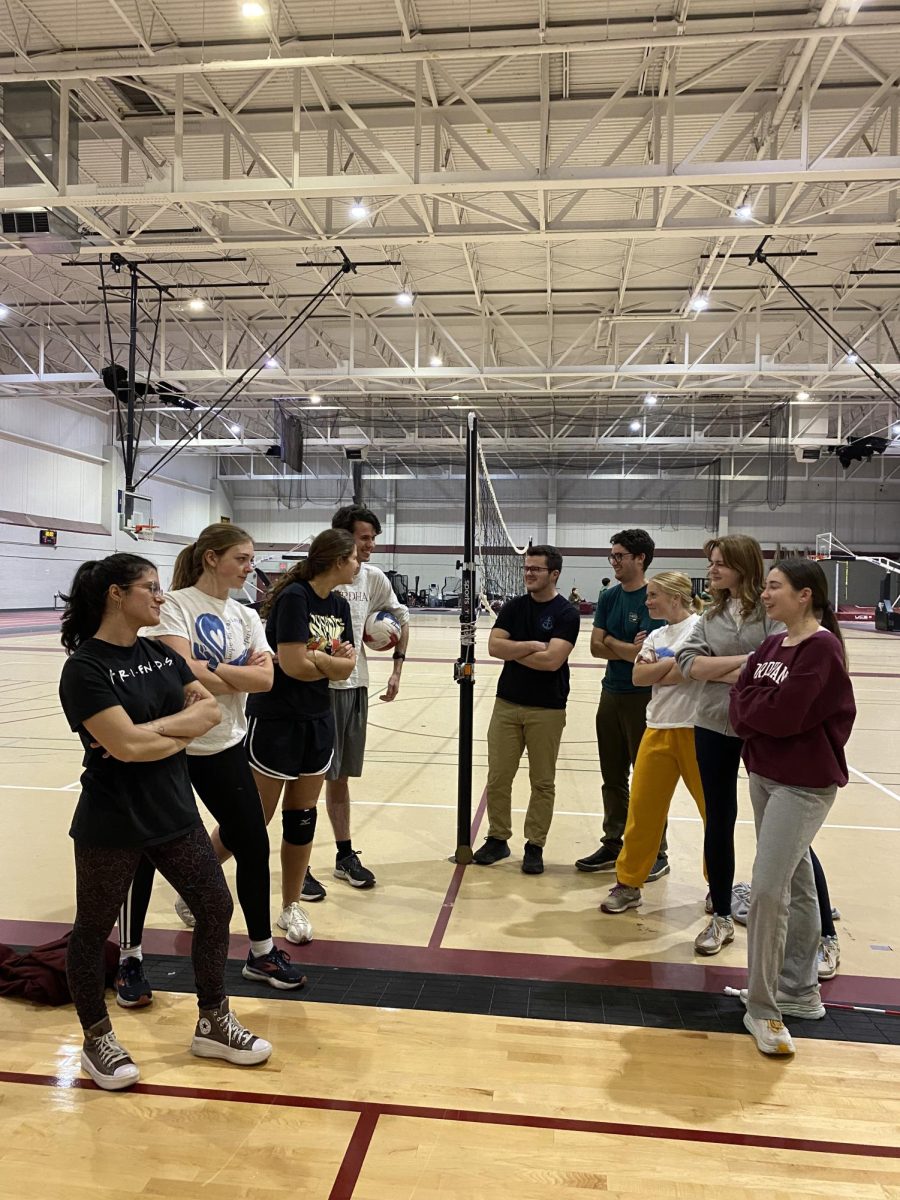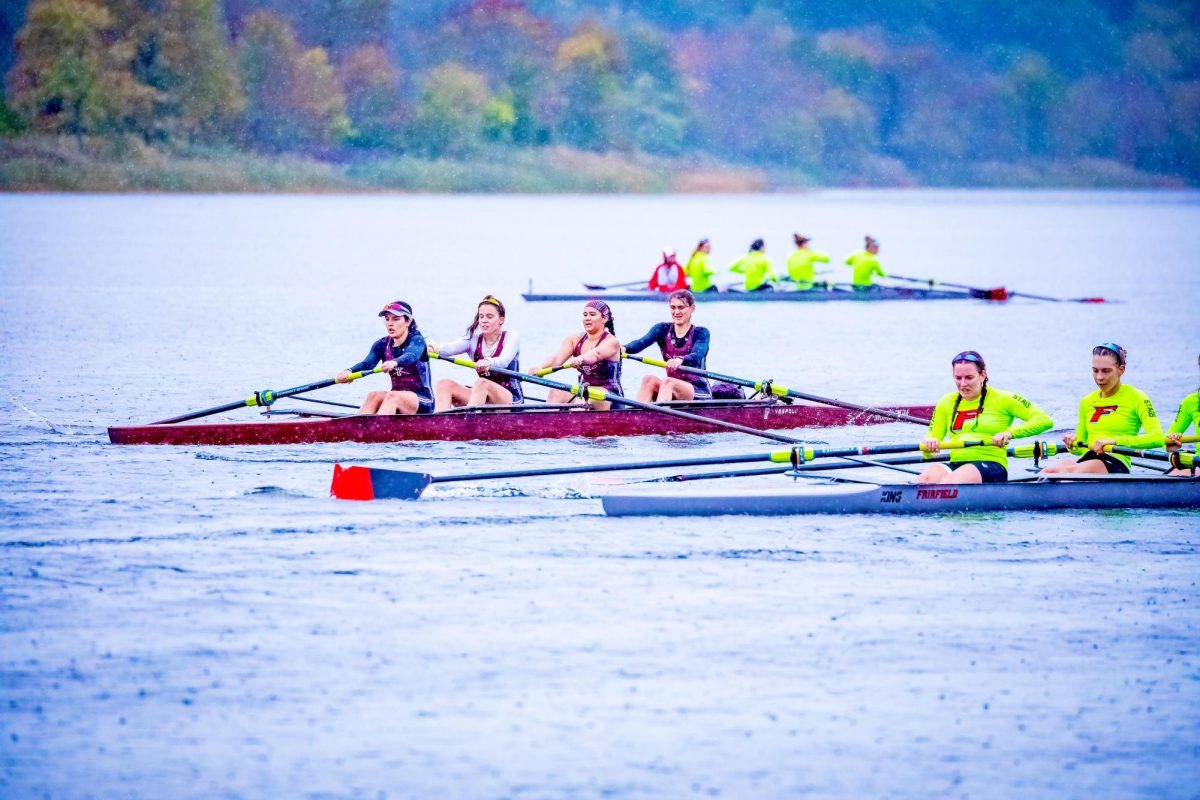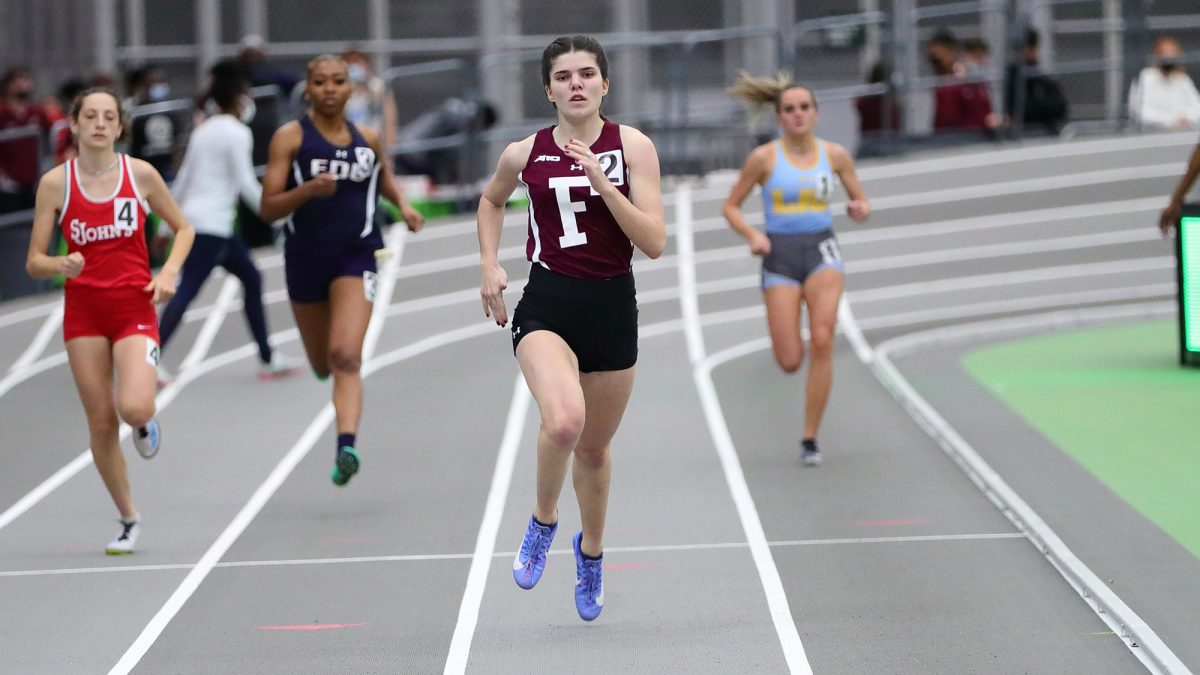As I enter my fourth year of track and field here at Fordham, I cannot help but reflect on my experience as an athlete. My relationship with running is a complicated one, as I’m sure it is for many. It’s exhausting to wake up earlier than most of my peers every morning for practice and to keep up with the increased responsibilities that come with being a student athlete. There’s paperwork, endless meetings, team lifts and then the season starts and it’s time to give up many of my weekends to travel, all for a race that lasts about a minute. Running track is not only extremely physically demanding, but mentally draining. It’s difficult to eat right, get enough sleep and keep up in school while simultaneously competing. It makes you wonder: why would anyone ever want to do this?
There’s the obvious answer that many student athletes receive some level of scholarship and some even are on full rides, but when I walked on as a freshman during the 2020 pandemic, this was not an option available to me. My first season of track, if you can even call it a season, was rough to say the least. We had to wear masks even when sprinting and running bleachers, which made these already arduous tasks worse. The season wore on with no promise of competition on the horizon as no one knew how the pandemic would progress. It felt like we were training for nothing and it became increasingly difficult to get up each freezing cold, black winter morning before the sun to trek across campus for practice in sometimes below freezing temperatures. Then, after being contacted in February 2020 and spending 10 days in quarantine, I finally contracted COVID-19 (for the first time) in March 2020 and lost what little momentum I had managed to build up after getting out of my first quarantine. This was right around the time it was decided we would have an extremely abbreviated season. Of course, there was no shot I could get back in shape in time to compete, so I ended my first year of track and field without ever running a single race. A lot of my teammates told me they never thought I’d return in the fall to the team, as it was extremely difficult getting used to the “NARP” (Non-Athletic Regular Person) lifestyle and then returning to play. So once again, why did I keep doing this? Somehow, I was there on the first day of practice sophomore year.
I do not remember exactly where I first heard this idea, but the saying “wisdom comes from suffering” has always stuck with me. I looked it up and apparently it is a quote by an ancient Greek philosopher. I often think of it when I’m training. Sometimes it can feel like I’m metaphorically (as well as physically) running in circles. Training is often physically painful. Many workouts I leave the track to walk to the cafeteria seeing stars, on legs that feel like they are made of jello. Sometimes, I’ll get lucky and come out of a workout with a runner’s high, but I’m just as likely to suffer from “tempo tummy.” This act of suffering, however, as dramatic as that might make it sound, is an essential part of my life. I love running, no matter how painful it can be at times. I love the opportunity for reflection it presents. I think it makes me a better person, both physically and mentally. Doing track has instilled me with endurance and resilience (both physical and mental). The act itself of training and racing may be at times incredibly onerous, but the ends justify the means. Running doesn’t just make me happy, it gives me a deeper satisfaction with life.
I contracted COVID-19 for a second time my sophomore year over winter break and it once again interrupted my progression. I don’t know what motivated me to start over yet again when it felt like all of my work over the past year and a half had essentially summed to nothing. I kept going, and eventually scored a point in one of the spring meets. This doesn’t sound like much, but I felt like I had finally proved myself. Although in the moment the first few seasons of track felt like a total wash (and in many ways they were), there was significance in the choice I made to continue to show up. Things were not great, in fact a lot of workouts made me feel like I got hit by a bus, but there was importance in that suffering. When I reflect now as a senior, it’s not the personal bests or points I’ve scored in meets that I’m most proud of, although I do recognize that I’ve come a long way as an athlete; rather, it’s my resilience.
When I was in sixth grade, my mom signed me up for cross country and I was put in a 1.2 mile race. I collapsed at the finish line and through my tears I screamed at my mother that I would never, ever run again. Now, a decade later, I’ve never been more happy to have been so wrong. The best times in my life were those that I was suffering because it made me who I am today. There has been a lesson in every single mile I’ve run since then. Running has taught me patience, resilience, endurance, courage and inner strength, and though it certainly hasn’t been easy, it has most definitely been worth it.





































































































































































































